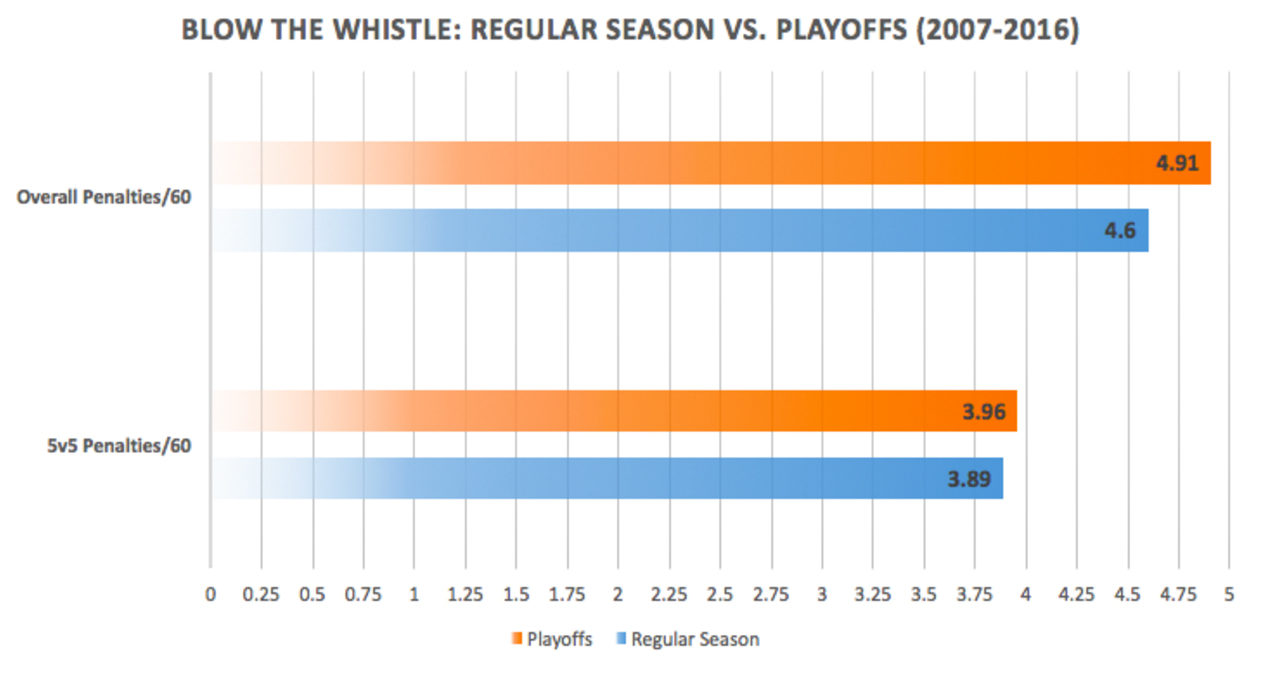The most objectively compelling opening round matchup in this year’s Stanley Cup Playoffs is the one involving two of California’s hockey titans. What stands out above all else, including the recent playoff history the two teams share, is how overqualified it is for a stage this early in the bracket.
San Jose-Los Angeles is just the 10th series since 2005 to feature two teams that registered possession rates north of 54 per cent in their final 25 regular season games. One of those 10 was the last epic clash the Kings and Sharks had in the spring of 2014, and five of the others came in either a Conference or Stanley Cup Final. In a perfect world this year’s Sharks-Kings series would come later on, but despite the fact there’s theoretically less at stake the hockey is still being played at the highest of levels.
Another part of the allure of this specific matchup is how evenly they stack up against each other at 5-on-5. That’s a testament to the commendable work Pete DeBoer and his staff have done elevating San Jose’s bottom line as the year went along, to the point where they’re now able to keep pace with the league’s marquee puck possession team. Those steady gains were highlighted by their fourth place finish in shot attempts over their final 25 games of the season.
It’s that improvement that closed the pre-existing gap between the two teams at even strength, making it exceedingly difficult to forecast how this seven-game series would play out. I admittedly wound up settling on taking the Kings in seven just because they were still a touch better over the course of the season, but it was easily the hardest series to decide on.
It’s something of a time-honoured tradition in hockey circles to misguidedly place an emphasis on intangible characteristics as distinguishing factors that separate two evenly matched teams.
Examples of the attributes that tend to be lionized are size, toughness and physicality. They all play into this idea that the game fundamentally changes in the post-season as refs “put their whistles away” and the game slows down.
Whether those things are actually positively correlated with winning is beside the point, because there’s no evidence to support the idea officiating changes. As Garret Hohl astutely posited it’s quite possible that the referees’ willingness to let more go is offset by players pushing their luck and crossing the line more often.
Whatever the case is, penalties actually tend to be called at a slightly higher rate in the playoffs:

The revelation that penalty rates carry over to the playoffs is a pertinent one here because it’s the one area in which there’s actually a clear divide between the Kings and Sharks:
| San Jose Sharks | Los Angles Kings | |
|---|---|---|
| Penalties Taken | 301 (6th) | 354 (22nd) |
| Penalties Drawn | 374 (8th) | 309 (25th) |
| Penalty Differential | 46 (2nd) | -45 (30th) |
The Sharks are historically a team that’s squeezed every ounce of juice out of this orange. Aside from a momentary lapse in judgement where they lost their minds and put together a trio for the ages by bringing in Mike Brown, John Scott, and Michael Haley, their roster construction has signalled a thorough understanding of the value of maximizing your opportunities to play with an extra attacker.
Going back five years, they’ve posted penalty differentials of +43, +22, +72, +35, and +46. During that time, their plus-218 differential leads the league, with the Hurricanes (+172) and Blackhawks (+148) the only other teams in triple digits.
The raw number of opportunities they’ve earned has been doubly devastating because of how lethal the power play has been. That’s particularly true this season, in which they led the league in total power play goals scored and finished fourth in efficiency.
Meanwhile, it’s not all that surprising to see the Kings on the other end of the spectrum given the aggressive style they play. That said, it also runs counterintuitive to the expectations for a team that has the puck as frequently as they do.
STANLEY CUP PLAYOFFS:
First Round Series Previews | Broadcast Schedule
Stanley Cup Playoffs Fantasy Hockey
A prime example of the two divergent styles came in the second period of Game 2, when Milan Lucic took an unnecessary charging penalty to put San Jose up a man. Rather than retaliating to a reckless hit, the Sharks instead made the Kings pay by scoring the eventual game-winner on the power play.
This’ll be an interesting subplot to monitor as the series progresses. While the Sharks are in a good position heading home with a 2-0 lead, we don’t have to go back too far in time to look for proof of how quickly these things can change. Both games were decided by just one goal, and it’s highly likely that trend continues. Taking advantage of these power plays will be key.
If the Kings are to dig out of this hole, they need to take fewer unnecessary penalties that play right into San Jose’s hands. In the regular season they were able to routinely compensate for those bad habits because they typically were the better team on any given night.
Against the Sharks, Los Angeles doesn’t have that luxury.






